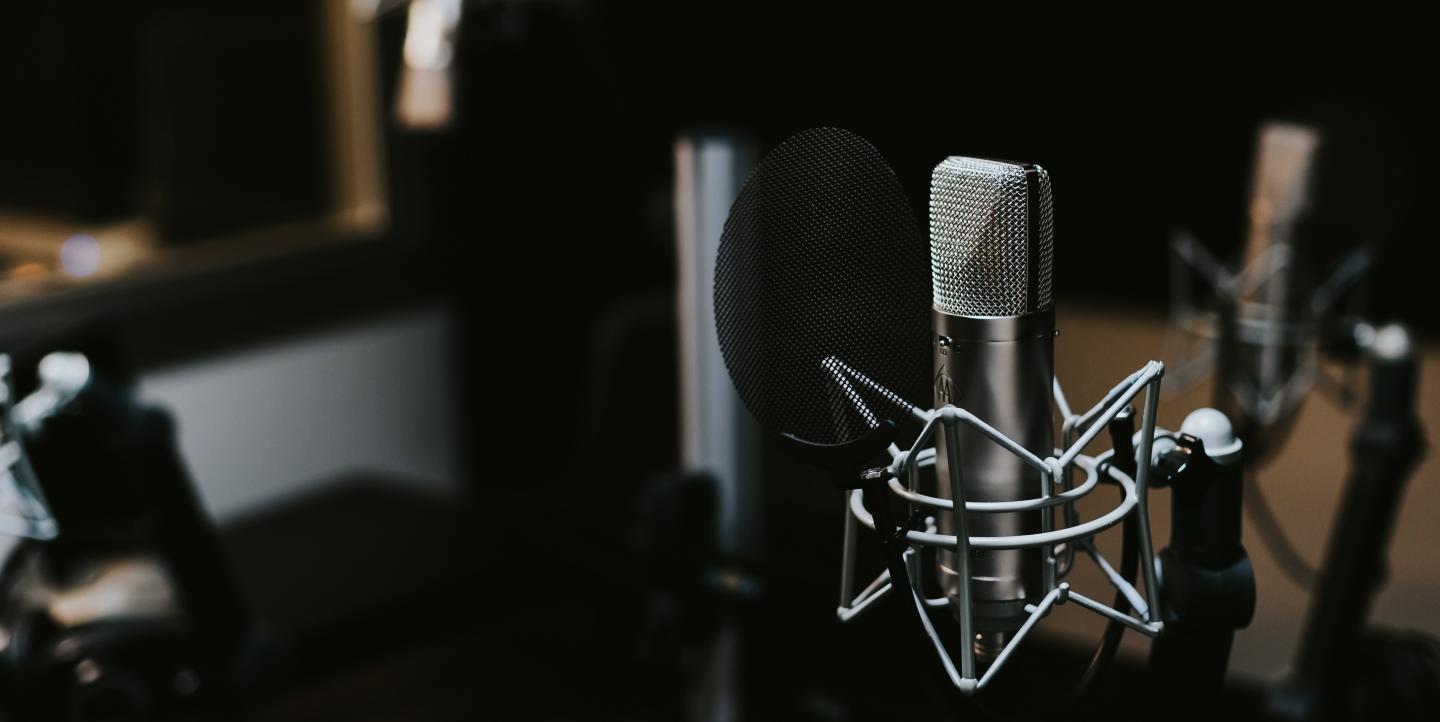With research and reporting by Jacqui Park and Alan Soon. Jacqui is the research and strategy director for Splice Media and the Senior Asia Pacific Fellow for the Centre for Media Transition at the University of Technology, Sydney. Alan is Splice’s co-founder.
As news broke of the $230 million sale of podcaster Gimlet Media to audio streaming platform Spotify, Moonshot co-host Kristofor Lawson was busy with his team in Melbourne’s Docklands setting up their own second podcast series and working on branded content.
The first podcast series from Lawson Media – Moonshot – has already suggested they have the potential to become one of the most successful media start-ups in Australia, and be one of the few able to carve out global scale.
CEO and founder Lawson is clear: good story-telling, with journalistic skills, is what gives them their edge.
The Moonshot podcast is now in its third series. It launched off the back of support from the Walkley Innovation Fund in March 2017, then built out with support from RMIT University’s Activator LaunchHUB, and bootstrapped with financial support from family and friends.
Their first podcast reached 100 downloads (“pretty dispiriting,” says Lawson) but they persisted. In July that year, they featured in Pocket Casts. By their fifth episode in August, the advertising started to come in. Now, Apple is using Moonshot in a global campaign for the Apple Watch.
By May 2018, the company had built sufficient revenues with about 70% from ads on the podcast and 30% from providing content and audio services.
Lawson had left his job at the ABC a year earlier to focus on building a sustainable business. He now has a team of about five working on podcasts and related projects such as an impending subscription-based newsletter email.
Know your niche
The Moonshot podcast is targeted at reporting the biggest ideas in tech – like moving to Mars or quantum computing – and talking to the people who are making that happen.
It’s not about consumer tech (“well covered already,” says Lawson). Their audience – over 650,000 downloads or about 10,000-15,000 an episode – tends to be in tech, engineering and design, often around the middle or higher levels of their companies. This puts Moonshot in the top 5% of the over 600,000 Apple podcasts.
They know their audience brings a level of technical understanding.
But, Lawson says, “I want my mum to listen to Moonshot and understand how autonomous vehicles are going to affect her life.”
A global business
The company recognizes that scale can only be built globally. “If you are going for real scale, you are not going to get that in the Australian market,” Lawson says. “We are well placed in this region. We have the talent in this country. If we focus on the global audience, we can get scale.”
Already about 50% of their listeners are in the U.S. But being in Australia shapes their content, as they try to interview people from outside the U.S. and from the Asia-Pacific region to bring a global perspective to the issues.
Charge global rates
Australian CPM rates for local podcasts tend to be about 30% or more less than the U.S. Serving a global audience, Moonshot saw the opportunity to charge out ads at U.S. rates, normally about US$37 (about AU$50).
Growth for sustainability, not the VC
As a business that has been built with support from family and friends and a handful of innovation grants, the company doesn’t have to grow to satisfy external valuations. It can grow step by step based on its income.
“What worries me most as a start-up company is cash flow, and being able to sustain it, so we can build a real business around it. We need to keep the show relevant and keep the audience engaged so that the advertising keeps coming in.”
For example, Lawson says they are about to launch a daily newsletter around the Moonshot brand. Every 600 subscribers will bring in revenues to support another journalist to work on the products.
Avoiding venture capital is not about a lack of ambition. “The sale of Gimlet Media at $230 million is fantastic for podcasting,” Lawson says. “It adds legitimacy to the field.” If anything, he says, it will turn out to be a cheap price.
It’s all about the journalism. “Audiences recognize quality,” Lawson says.
“What differentiates us from any person who decides to sit in front of a microphone and start talking, is the journalism.
“In the end, quality in podcasting is about a combination between the depth of the storytelling and the quality of the audio production. You can have a really fantastic investigation but if the audio is terrible, it can be a turn-off for listeners. We want our listeners to recognize the work that goes into making our podcasts a reality and that only shines through when the show sounds as good as the journalism that went into it.”
Lawson recently launched their second podcast series, Building A Unicorn, which features interviews and profiles with entrepreneurs and designers on how companies scale. There are other podcasts on the drawing board and the Moonshot newsletter. Lawson is also thinking of building his own content management system. They’ve just moved into their offices and by the end of 2019 the company hopes to have about 10-15 employees.
It’s about sustainable growth, but in the race to be the first podcasting giant, Lawson Media is keen to be a contender.
This article was originally published by Splice. It was republished on IJNet with permission.
Main image CC-licensed by Unsplash via Jonathan Velasquez.

